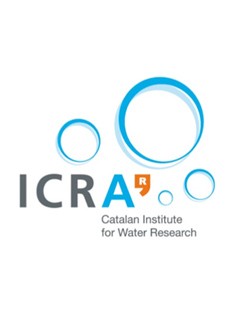Short Bio Organization
The Catalan Institute for Water Research (ICRA) was inaugurated in 2009 by the
Government of Catalonia within the framework of the Research Centres Programme of Catalonia (CERCA). The specific characteristic of ICRA is the aggregation of most strategic areas in water research (chemistry, ecology, water technology, microbiology, etc.) in a single Institute by enhancing integration and promoting a Mediterranean perspective of water issues. ICRA is structured as a top-quality multidisciplinary centre around three main research areas: I) Resources and Ecosystems, II) Water Quality, and III) Technologies and Evaluation.
ICRA has participated in more than 100 research and training projects, around 70 national and 30 European and international ones for more than 17 M€. Among the latter, 1 ERC Starting Grant, 4 Marie Curie Reintegration Grants, 5 Marie Curie Initial Training Networks (2 as coordinator), 6 Marie Curie Individual Fellowships, 6 FP7 and 2 Horizon2020 projects (Hydrousa and EdiCitNet) and 10 knowledge transfer projects. Only in 2016 ICRA communicated its outstanding scientific production with 192 publications in international scientific journals, books and other publications, and 251 reports in the media. Together with UdG, UIB and CSIC, ICRA is promoter of the International Campus of Excellence “Campus e-MTA: Euro-Mediterranean Tourism and Water Campus”.
Relation with HYDROUSA
Two main areas of ICRA are involved in HYDROUSA: The Technology and Assessment Area and the Water Quality Area.
The Technology and Assessment Area focuses on the Urban Water System in the context of circular economy evaluating process mechanisms, energy optimization, environmental impact assessment, scale-up and technology transfer applied to several water and wastewater treatment technologies.
The Water Quality area aims to define the concentrations, fate and mechanisms of action of micropollutants and pathogenic elements in natural and reused waters. Additionally, the Water Quality Area can perform the assessment of antibiotic contamination and the identification and quantification of ARGs.






